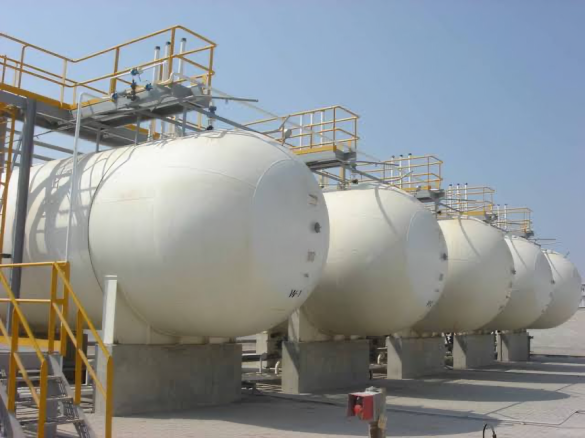In a significant step towards Africa’s just energy transition, a liquefied natural gas (LNG) development project has been signed in South Africa’s Mpumalanga province. The project, a joint effort between Kinetic Energy of Australia and the Industrial Corporation of South Africa (IDC), is set to leverage Kinetic Energy’s recent discovery of 3.1 billion cubic feet of natural gas in Amersfoort, Mpumalanga.
The ambitious project is expected to produce 50 megawatts (MW) of equivalent energy initially, with plans for expansion up to 500 MW. Kinetic Energy, describing it as South Africa’s largest onshore LNG project, highlights the potential of natural gas to boost the nation’s economy and meet its energy demands.
South Africa’s move towards expanding its oil and gas operations aligns with its commitment to reduce reliance on coal and support decarbonization efforts. This shift is reflected in the recently released “The State of African Energy 2024 Outlook Report” by the African Energy Chamber (AEC), which highlights the global rise in natural gas production and its role as a transition fuel.
The AEC is set to support the Invest in African Energy Conference in Paris this year, organized by Energy Capital and Power, solidifying Africa’s position as a hub for natural gas investment.
Gas: A Logical Transition Fuel
Despite calls from environmental organizations and wealthy nations to halt investments in African oil and gas projects, many companies operating in Africa recognize the value of natural gas as a transition fuel. Decarbonization is a complex process, and building the necessary infrastructure for renewables is not an overnight task, especially for African nations that have historically lacked development opportunities.
The reality is that Africa cannot leap straight to renewable energy sources while millions of its citizens still lack access to electricity. To fund and build the essential infrastructure, Africa must tap into its own natural resources, with natural gas playing a pivotal role due to its cleaner-burning properties, abundance, ease of storage and transport, and applications in various industries.
Companies Leading the Way
Several energy companies are actively contributing to Africa’s natural gas industry. TotalEnergies, a French major, continues its exploration and production efforts in South Africa, despite environmental opposition. The company is also driving the Mozambique LNG project, a significant hydrocarbon development.
German independent company Wintershall Dea is increasing its involvement in the Reggane Nord natural gas project in Algeria. The company’s CEO and Chief Operating Officer, Dawn Summers, emphasized the role of the gas and oil industry in addressing climate change, stating that gas can significantly reduce CO2 emissions when used instead of coal.
Africa’s Tremendous Natural Gas Potential
According to the AEC’s report, Africa holds immense natural gas potential, with projected output rising from 265 billion cubic meters (bcm) in 2023 to over 280 bcm by 2025. North Africa currently leads in gas production, but increased output is expected as new projects come online across the continent.
Nigeria and Algeria are expected to focus on LNG exports, with additional contributions from Egypt, Equatorial Guinea, Mozambique, and the waters off Senegal-Mauritania. Africa’s natural gas sector is poised to pave the way for decarbonization, but this goal can only be achieved if developed nations allow African states to transition at their own pace, recognizing their unique challenges and opportunities.



